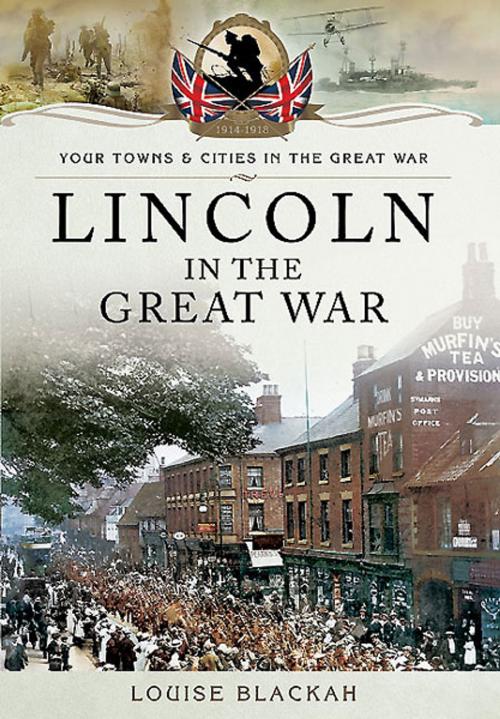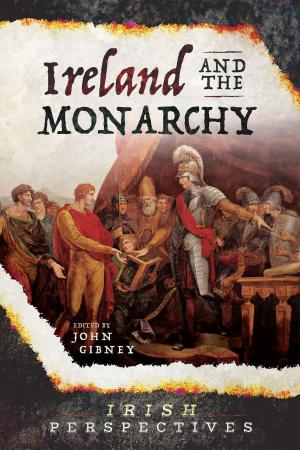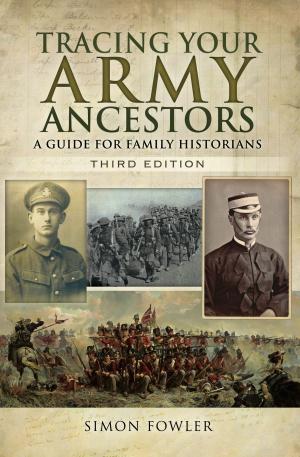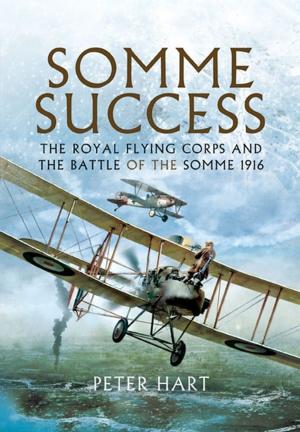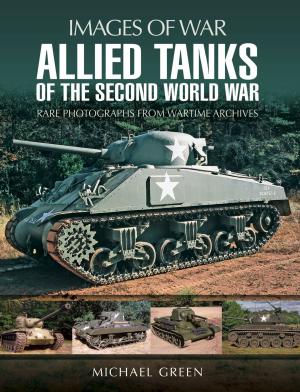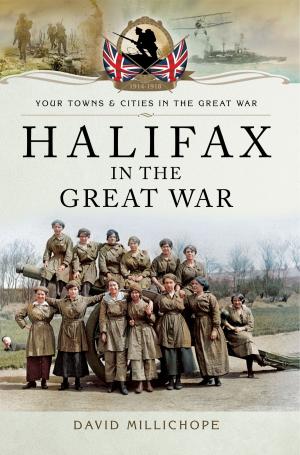| Author: | Louise Blackah | ISBN: | 9781473866195 |
| Publisher: | Pen and Sword | Publication: | August 31, 2016 |
| Imprint: | Pen and Sword Military | Language: | English |
| Author: | Louise Blackah |
| ISBN: | 9781473866195 |
| Publisher: | Pen and Sword |
| Publication: | August 31, 2016 |
| Imprint: | Pen and Sword Military |
| Language: | English |
Lincoln produced many heroes during WW1 including, Wing Commander Fiennes who was the Commanding Officer of 38 Squadron from 1916 to 1917 flying FE2b aircraft (known as the 'Fees') on patrol against raiding German Zeppelins over Lincolnshire and the surrounding counties. Also, a winged version of the Lincoln Imp adorned many of the First World War aircraft including the famous Sopwith Camel, manufactured extensively by Lincoln firms Clayton and Shuttleworth, Robeys and Ruston Proctor.
This book also looks at how the experience of war impacted on the City, from the initial enthusiasm for sorting out the German Kaiser in time for Christmas 1914, to the gradual realization of the enormity of human sacrifice the families of Lincoln were committed to as the war stretched out over the next four years.
The Great War affected everyone. At home there were wounded soldiers in military hospitals, refugees from Belgium and later on German prisoners of war. There were food and fuel shortages and disruption to schooling. The role of women changed dramatically and they undertook a variety of work undreamed of in peacetime. Extracts from contemporary letters reveal their heroism and give insights into what it was like under battle conditions, particularly from those of the Lincolnshire Yeomanry.
Lincoln produced many heroes during WW1 including, Wing Commander Fiennes who was the Commanding Officer of 38 Squadron from 1916 to 1917 flying FE2b aircraft (known as the 'Fees') on patrol against raiding German Zeppelins over Lincolnshire and the surrounding counties. Also, a winged version of the Lincoln Imp adorned many of the First World War aircraft including the famous Sopwith Camel, manufactured extensively by Lincoln firms Clayton and Shuttleworth, Robeys and Ruston Proctor.
This book also looks at how the experience of war impacted on the City, from the initial enthusiasm for sorting out the German Kaiser in time for Christmas 1914, to the gradual realization of the enormity of human sacrifice the families of Lincoln were committed to as the war stretched out over the next four years.
The Great War affected everyone. At home there were wounded soldiers in military hospitals, refugees from Belgium and later on German prisoners of war. There were food and fuel shortages and disruption to schooling. The role of women changed dramatically and they undertook a variety of work undreamed of in peacetime. Extracts from contemporary letters reveal their heroism and give insights into what it was like under battle conditions, particularly from those of the Lincolnshire Yeomanry.
